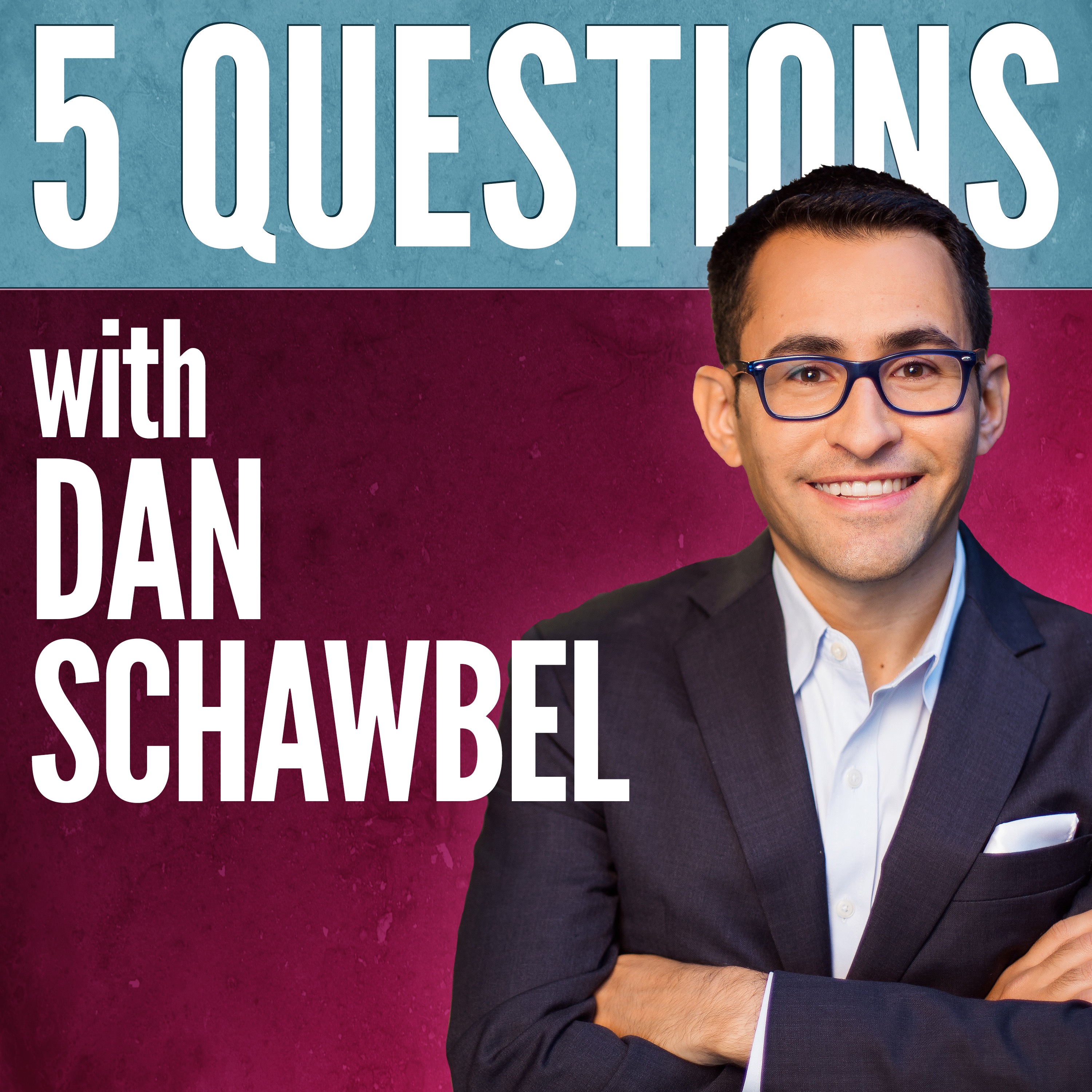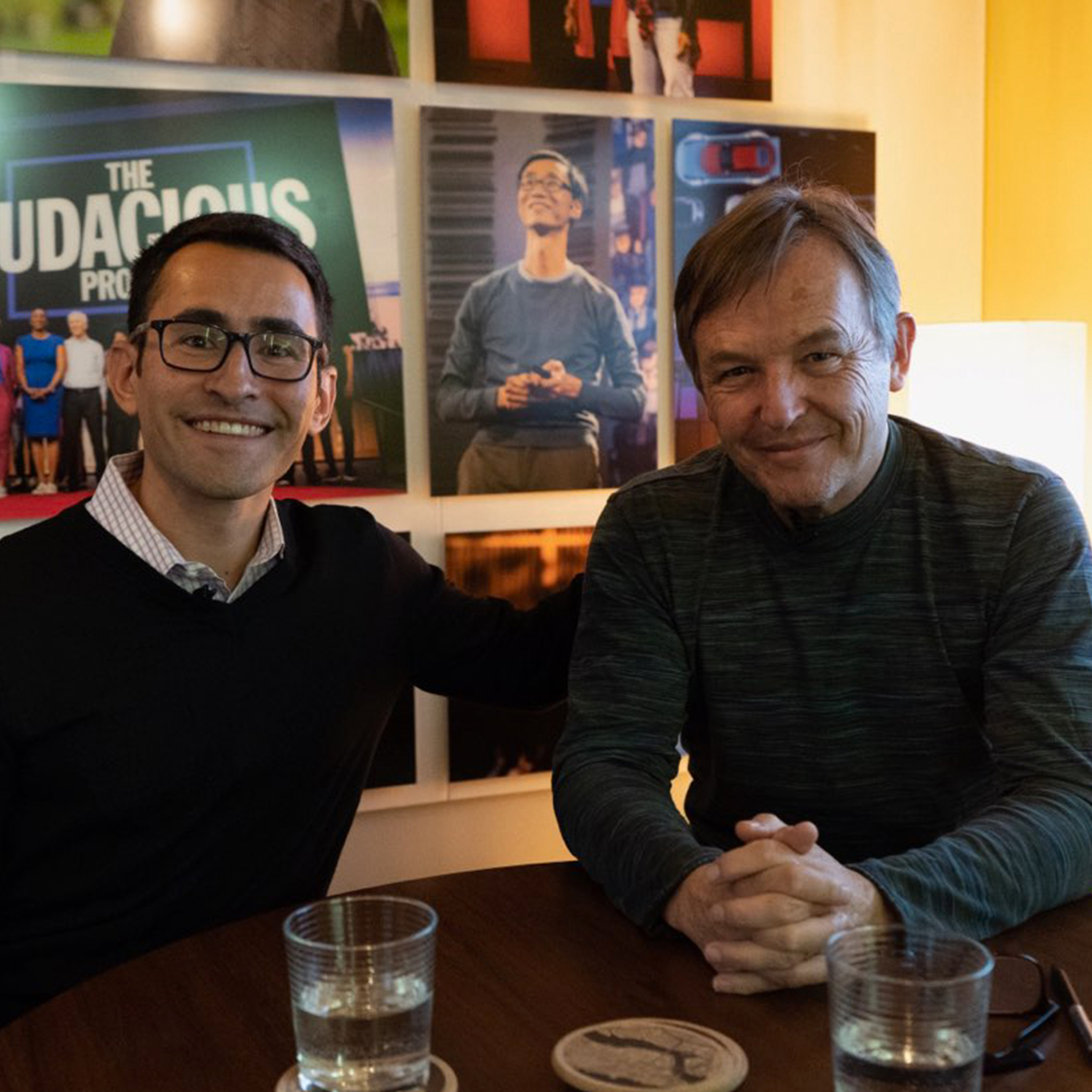 An interview with Chris Anderson, the head of TED, about how he keeps the TED brand fresh, what keeps him motivated, how he selects people and ideas, and which TED ideas have changed society the most.
An interview with Chris Anderson, the head of TED, about how he keeps the TED brand fresh, what keeps him motivated, how he selects people and ideas, and which TED ideas have changed society the most.
Welcome to the fifteenth episode of 5 Questions with Dan Schawbel. As your host, my goal is to curate the best advice from the world’s smartest and most interesting people by asking them just 5 questions.
Podcast: Play in new window | Download (Duration: 7:07 — 8.2MB) | Embed
Subscribe: Apple Podcasts | Spotify | Email | TuneIn | RSS | https://danschawbel.com/subscribe
This episodes guest:
 Chris Anderson was born in Pakistan. He studied at Woodstock School in India before moving to Monkton Combe School in England. At the University of Oxford, he studied physics, then changed to philosophy, politics and economics, graduating in 1978. Then in 1984, he was captivated by the home-computer revolution and became an editor at two of the UK’s early computer magazines, Personal Computer Games and Zzap! A year later he founded Future Publishing with a $25,000 bank loan. In 1994, Anderson moved to the United States where he built Imagine Media, publisher of Business 2.0 magazine and creator of the popular video game users website IGN, which expanded to publishing 150 magazines and websites with 2,000 employees. This success allowed Anderson to create a private nonprofit organization, the Sapling Foundation, which eventually acquired the TED Conference in 2001. Since then, the TED Conference has become one of the most prestigious stages in the world, and through the TEDx initiative over 100,000 TED Talks have been published online generating billions of views. Chris is the New York Times bestselling author of TED Talks and host of “The TED Interview”, a podcast where he speaks with some of the world’s most interesting people to dig into the provocative and powerful ideas of our time.
Chris Anderson was born in Pakistan. He studied at Woodstock School in India before moving to Monkton Combe School in England. At the University of Oxford, he studied physics, then changed to philosophy, politics and economics, graduating in 1978. Then in 1984, he was captivated by the home-computer revolution and became an editor at two of the UK’s early computer magazines, Personal Computer Games and Zzap! A year later he founded Future Publishing with a $25,000 bank loan. In 1994, Anderson moved to the United States where he built Imagine Media, publisher of Business 2.0 magazine and creator of the popular video game users website IGN, which expanded to publishing 150 magazines and websites with 2,000 employees. This success allowed Anderson to create a private nonprofit organization, the Sapling Foundation, which eventually acquired the TED Conference in 2001. Since then, the TED Conference has become one of the most prestigious stages in the world, and through the TEDx initiative over 100,000 TED Talks have been published online generating billions of views. Chris is the New York Times bestselling author of TED Talks and host of “The TED Interview”, a podcast where he speaks with some of the world’s most interesting people to dig into the provocative and powerful ideas of our time.
Video interview from New York City:
The 5 questions questions I ask in this episode:
- Over 100,000 TED and TEDx talks have been published. How do you keep the brand fresh and continue to get people interested in watching and spreading ideas?
- What keeps you motivated and inspired to continue to help spread ideas through the TED platform? What does the future hold?
- Has your process for selecting people, and their ideas changed over the years? What’s remained consistent?
- Which TED ideas have changed the way you work and live and why?
- Have any ideas shared on the TED stage turned into real life changes in society or companies?
Follow Chris’s journey:

Leave a Reply